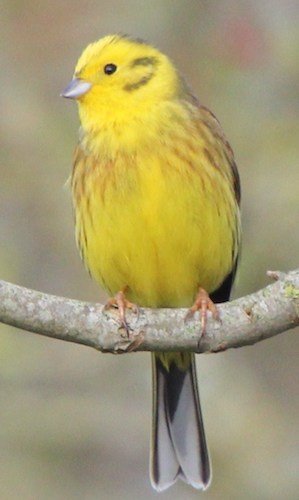County Tipperary

Birding County Tipperary
County Tipperary (Irish: Contae Thiobraid Árann) is a county in Ireland situated in the province of Munster. Tipperary was one of the first Irish counties to be established in the 13th century.Tipperary is famous for its horse breeding industry and is the home of Coolmore Stud, which is the largest thoroughbred breeding operation in the world. The County forms a large part of the Golden Vale (or Vein) of Munster, boasting a rich and fertile agricultural landscape. The County particularly nurtures the ancient game of hurling and its teams have regularly been champions of Ireland since the 19th century.The region is part of the central plain of Ireland, but the diverse terrain contains several mountain ranges: the Knockmealdown, the Galtee, the Arra Hills and the Silvermine Mountains. Most of the county is drained by the River Suir; the north-western part by tributaries of the River Shannon; the eastern part by the River Nore; the south-western corner by the Munster Blackwater. No part of the county touches the coast. The centre is known as ‘the Golden Vale’, a rich pastoral stretch of land in the Suir basin which extends into counties Limerick and Cork.Kevin Collins chose Yellowhammer to illustrate this page as Tipperary is dominated by farmland. He took the photo near Clonmel in November 2014
-
Wikipedia
GNU Free Documentation License
http://en.wikipedia.org/wiki/County_Tipperary
-
BirdWatch Ireland Tipperary Branch
WebsiteAt this site you will find everything you need to know about birds and birdwatching in Co. Tipperary. We have up-to-date sightings and a fabulous photo gallery. We have details of up-coming branch outings and talks. There are site guides to the best birdwatching sites in the County and individual species profiles.
-
NR Redwood Bog
WebpageSatellite ViewRedwood is the most northerly townland in Tipperary and in Munster. The bog was acquired from Bord na Móna for conservation purposes. It is a raised bog that has developed on the southern margin of the Little Brosna flood plain at its confluence with the Shannon. It forms part of the Little Brosna Callows Area of Scientific Interest, which is of international importance as a wildfowl habitat and as a classical example of a flood plain ecosystem. The reserve includes the last relatively intact bog dome on the flood plain margin as well as a dried out portion of another dome and an area of fen. The intact dome has a typical raised bog flora and in the centre it retains quaking areas and numerous bog pools.
